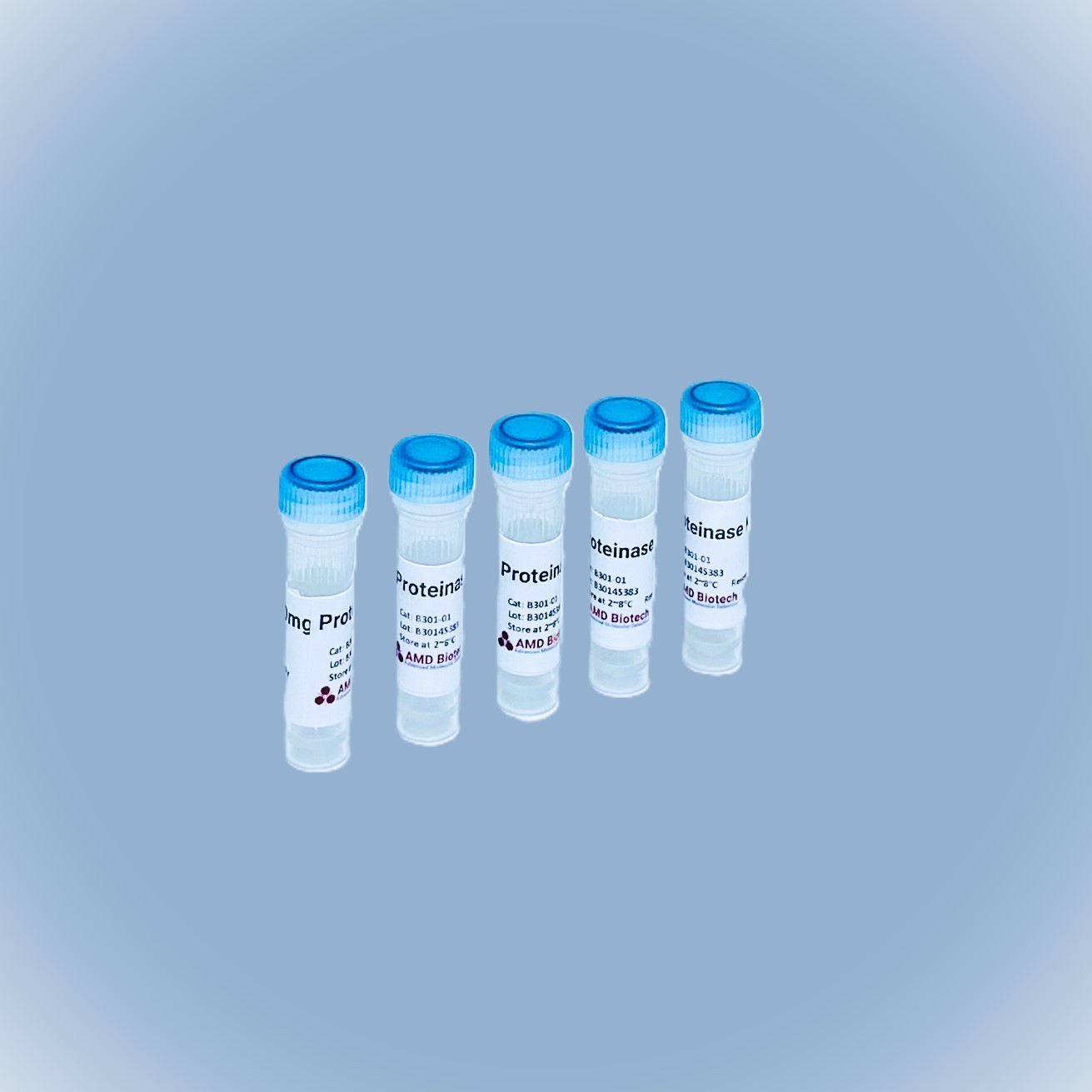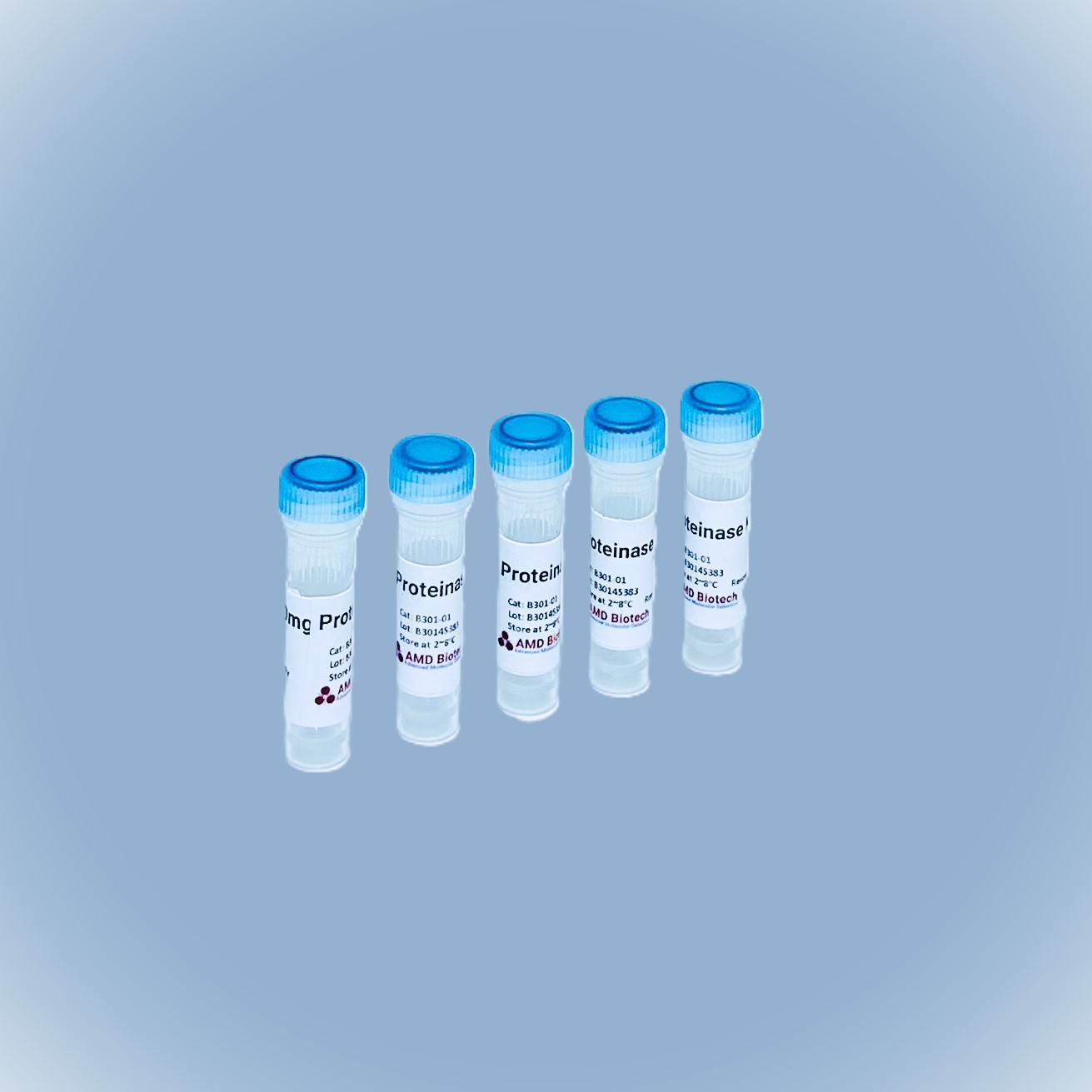Proteinase K, recombinant (20mg/ml)


Product Information
- At least 50% significant cost savings compared to any similar product
- No resuspension or thawing before using
- High activity in elevated temperatures (up to 56°C) and under denaturing conditions
- Stable over a wide pH range of 4.0–12.5 for use in a variety of applications
Proteinase K is a nonspecific serine protease widely used for the digestion of proteins. It cleaves peptide bonds on the carboxyl side of aliphatic, aromatic, or hydrophobic amino acids, with the smallest peptide it can hydrolyze being a tetrapeptide. The molecular weight of Proteinase K is 28,900 Daltons (28.9 kDa). This enzyme is known for its high stability and activity in the presence of SDS, EDTA, and urea, and it functions effectively across a broad pH range. Proteinase K is commonly used to break down proteins in cell lysates (such as tissue or cultured cells) and to facilitate the release of nucleic acids. It is also essential for inactivating nucleases and aiding in cell lysis during the isolation of DNA and RNA.
Applications
- Isolation of plasmid and genomic DNA
- Isolation of genomic DNA from mouse tail
- Isolation of genomic DNA from cultured cells
- Isolation of RNA
- Inactivation of RNases, DNases and enzymes in reactions
- Improving cloning efficiency of PCR products.
The proteinase K solution has been sterile filtered, which can maintain its activity for a long time at room temperature and low temperature. It is recommended to store at 2-8 ℃ for long-term storage.
Specifications
- Product Type:
- Proteinase K
- Form:
- Liquid
- Molecular Weight:
- 28.9 kDa.
- pH Range:
- 4.5-12.0; high activity in the pH range of 7.5-11.5.
- Shipping & Storage:
- Shipping at ambient temperature. Store at 2-8°C.
- ===========================

